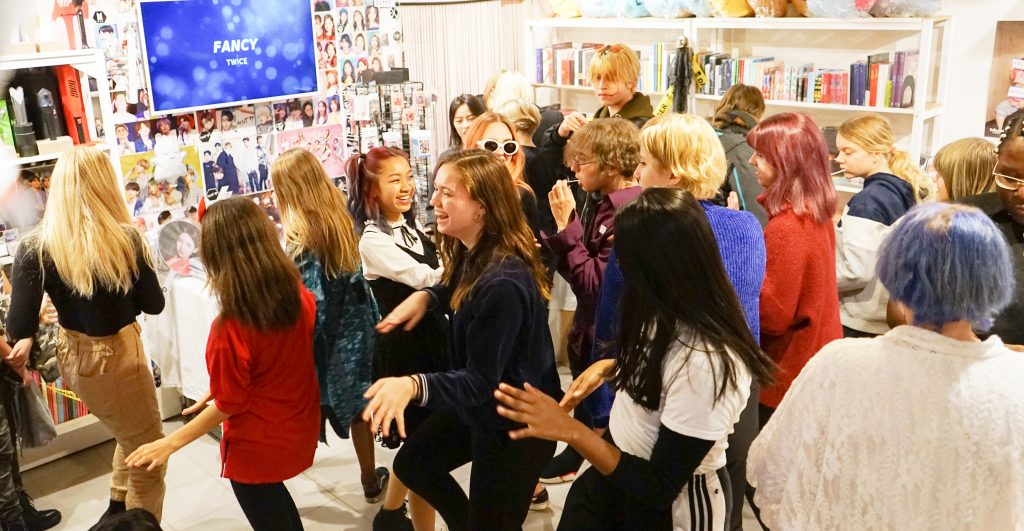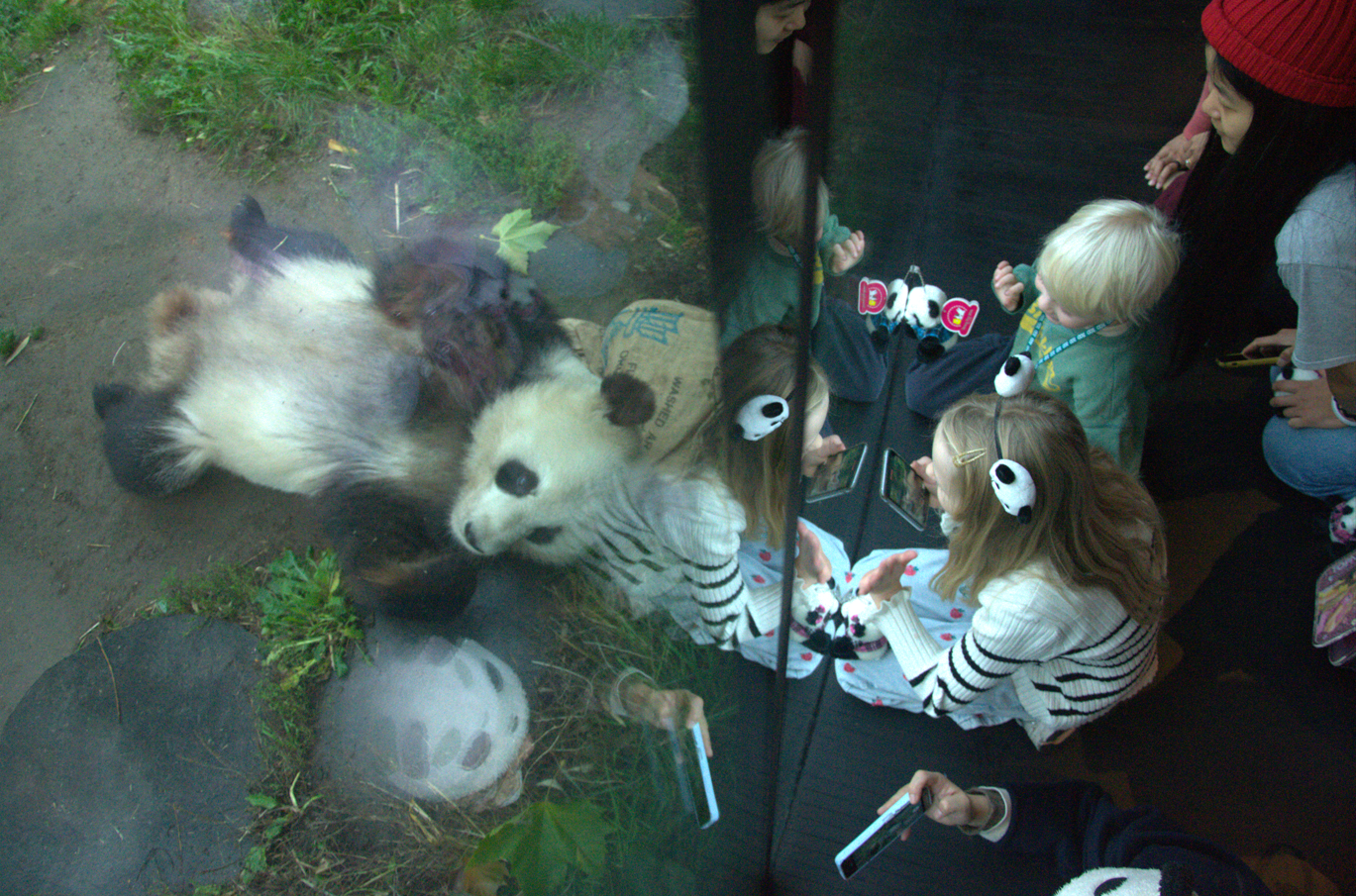You might be forgiven for presuming (and secretly praying) that the recent craze with South Korean pop music started and ended with ‘Gangnam Style’ – an uproarious number with its own dance that convinced half the world’s population that they finally had some moves.
But you’d be myopic, because not only has it conquered young minds in Denmark, but it also has its own shop, All in K-Pop.
The Østerbro store, from which a community for K-Pop fans in Denmark has sprung, is owned by Mette Kidal and Lars Christensen, former school music teachers.
In the corner behind an album shelf, young Danish K-Pop fans often gather to relax and share news of developments 8,128 km away on the Korean peninsula.
And it’s been such a success that it is moving to a new premises at Nansensgade 60 in the city centre, where it is officially opening on November 23.
Nationwide customer base
When the owners turned their office storage facility into a one week pop-up store to celebrate the debut of their webstore, they drew K-Pop fans from all over the country.
The street was bustling with the pop-up’s first visitors, creating a queue to the end of the street, and Kidal and Christensen simply couldn’t close their doors to the volume of interested customers once the week was over.
Christensen recalls their very first customer – a young girl from a remote area 80 km away from the shop – while Kidal recalls another, whose father drove her through a storm from Vordingborg to bring her.
“They warned motorists not to drive unless they must. And her father had a job in Copenhagen, so he had to drive four times back and forth on the same day,” recalled Kidal.
But most of all, the owners were blown away by the way the visitors immediately started networking and sharing their lives, creating a community in the process.
Listen to your kids!
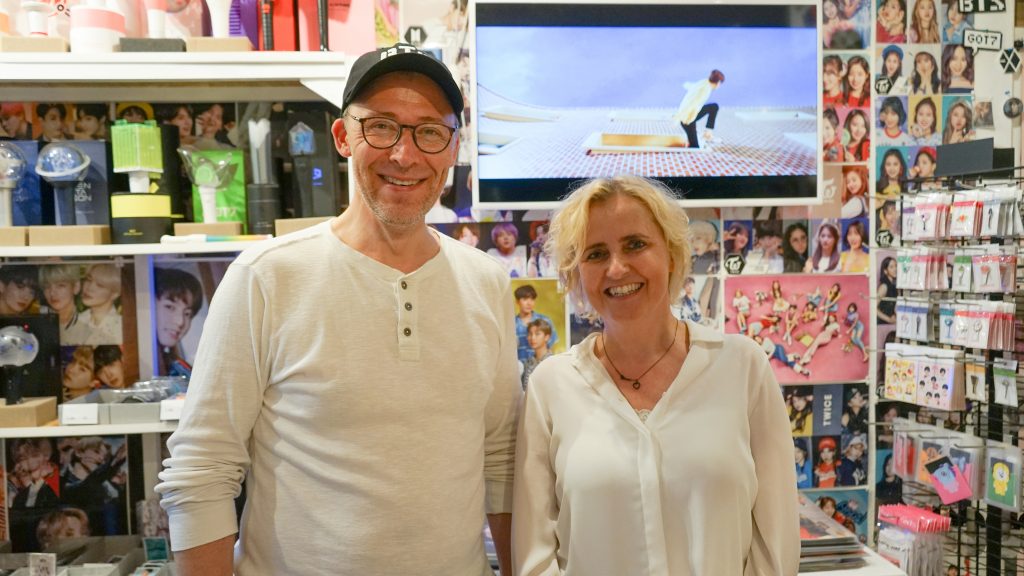
The owners were unaware of the K-Pop genre until three years ago, when Kidal’s daughter, Ida, played a BTS song on Spotify.
Later, Kidal and her daughter travelled to London, where Kidal suggested visiting a K-Pop store. Surprisingly, there were none.
Back home, Kidal suggested opening a K-Pop store to her colleague Christensen, who replied: “K-what”?
After finding out many Danish kids are into K-Pop, Christensen soon realised that the younger generation used various social media channels to seek out information.
“You need to know the right Facebook group and Instagram account to get information out,” he said.
In this vein, Kidal believes listening to one’s kids is crucial: “I think the lesson is to listen to your children. They have a lot to say, and you have to listen to what they have to say because every new thing comes from young people.”
Pop in and take a peek
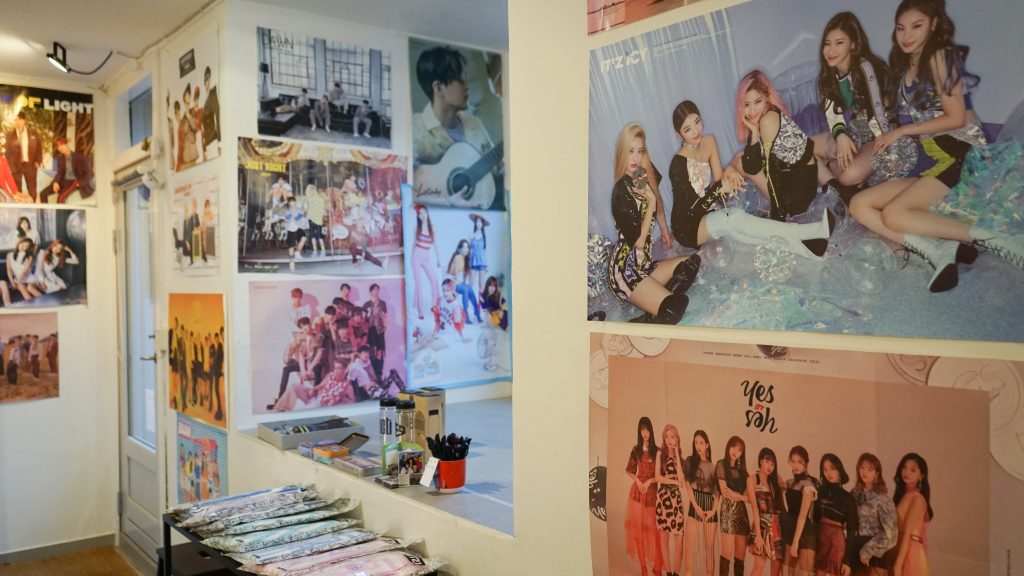
The store’s visitors vary in age, nationality and gender. But the regulars hanging out are usually young, international teenagers currently living in Denmark.
When asked what they like about All in K-Pop, the student workers at the shop gladly provided a plethora of reasons.
Lukas, 16, particularly likes Twice, a bubbly girl group with a worldwide reputation. Initially, he was not into K-Pop and found it rather quirky. But one day he researched the band and thought to himself: “Wait, this is actually good.” Later he began to work for All in K-Pop.
“Everyone is so friendly – it’s such a good spirit … like being at home. It’s just nice to be here,” he said.
Anita, a 14-year-old student, echoes Lukas’ sentiments. On Wednesdays, she enjoys a random dance event at All in K-Pop, where people gather to dance to K-Pop choreography. The participants are surprisingly good.
No role models
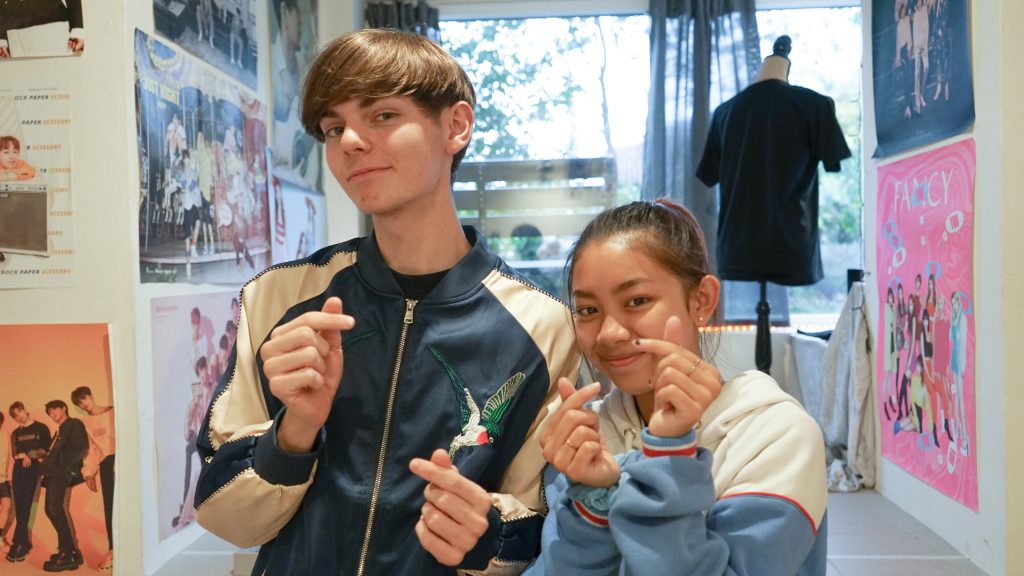
Lukas, however, has witnessed problems within the K-Pop industry.
“Once a member of Twice needed to lose a lot of weight. It was a lot. For a whole week she only ate ice cubes and trained very hard. She cried every night that she thought she would die. I thought that was very harsh,” he said.
Despite the glamour, K-Pop has been heavily criticised in South Korea. A K-Pop boyband member was allegedly involved in promoting prostitution, drug trafficking and police corruption at his nightclub, Burning Sun. And society fears what effect young artists’ suicides might have.
As former teachers, Kidal and Christensen do not shy away from such issues and encourage difficult discussions, as high beauty standards and obsessive fan-ship can take a heavy toll.
“What we hear from Danish fans coming into this shop is that sometimes the idols are under too much pressure and that they feel for them. I do not see them trying to emulate them,” Christensen said.
Indeed, most visitors regard their behaviour – such as not being allowed to date, have a personal phone or have holiday time – as abnormal.
“For example, when Rap Monster from BTS came to Copenhagen for a holiday he wasn’t mobbed. Instead, everyone said: ‘Leave him alone’.”


